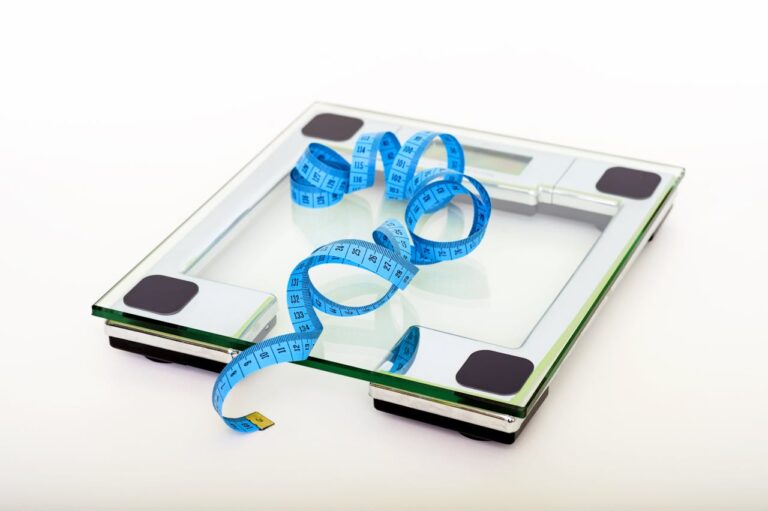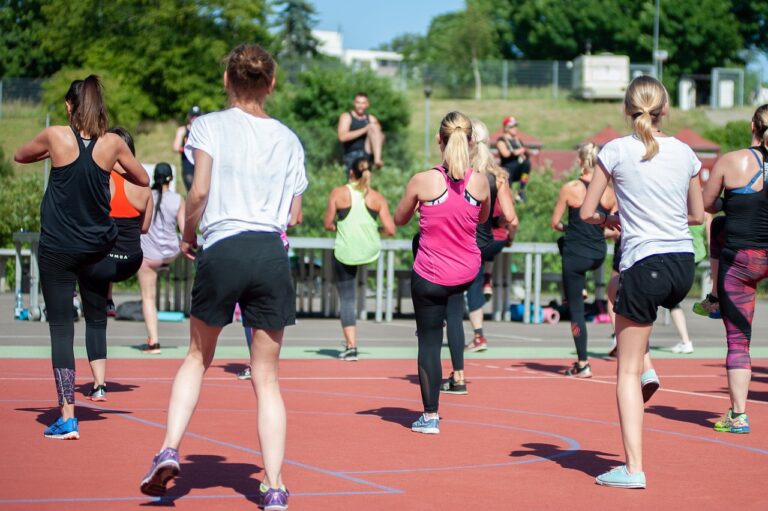
Body Positivity vs. Fitness Industry: Why Women Are Being Misled
Affiliate links may be used in this post. I may receive a small commission at no extra cost to you if you make a purchase through my affiliate link. Read my full disclosure policy here.
From Tractor Rides to Treadmills: My Fitness Journey of Comparisons
Growing up in a small village without a gym meant my workouts looked a little different from most. Instead of treadmills and barbells, I was lifting buckets of potatoes and getting my cardio by running after stray chickens. Tractor rides? That was my version of a spin class!
I’ve always been pretty active, but let’s be honest, my love for wine and a good cheese platter probably undid half that effort. While I wasn’t exactly “fat,” I was far from sculpted, especially compared to my two best friends who somehow stayed effortlessly thin while eating pizza and chocolate like it was their job.
I’m convinced they had some sort of secret deal with the universe! Comparing myself to them and to the impossibly perfect bodies on social media, I often felt like I was in a losing battle. I mean, how is it that *everyone else* seems to have abs but me?
Raising Daughters in a Filtered World: Breaking the Comparison Cycle
As a mom to an 8-year-old daughter, I’m increasingly aware of how social media’s comparison game can mess with our heads—and I worry about its impact on the younger generation. The pressure to look a certain way is everywhere, and if I’m not careful, I might end up passing those same insecurities onto my daughter.
I catch myself thinking about my appearance or critiquing my body, and I know little ears are listening. It’s a wake-up call. I need to model positive self-talk and healthy body image so she grows up loving herself for who she is, not constantly comparing herself to unrealistic, filtered standards. The last thing I want is for her to feel the same pressure and insecurity I did growing up.
I believe the fitness industry is failing women by promoting unrealistic body standards and focusing too much on aesthetics rather than overall health. Social media and fitness marketing often push a narrow definition of beauty, making women feel inadequate unless they conform to these ideals.
Additionally, many fitness programs don’t consider the diverse needs of women’s bodies, including different fitness levels, menstrual cycles, or postpartum recovery, leading to frustration and burnout.

Promoting Unhealthy Eating Habits
The fitness industry often glorifies obsessive calorie counting, restrictive eating, and fad diets like keto or juice cleanses. This culture encourages women to starve themselves or deprive their bodies of essential nutrients, leading to harmful relationships with food.
Instead of promoting balanced eating, many fitness influencers push extremes that can cause nutritional deficiencies, disordered eating, or yo-yo dieting patterns.
Too Much Pressure to Be Skinny, Not Strong
The message often revolves around being “skinny” rather than healthy, strong, or fit. Many fitness programs and social media influencers focus on the aesthetics of thinness, pressuring women to achieve a body type that might not be natural for them. This undermines the importance of strength and overall health, which should be the real goal.
Unrealistic Social Presence Trapping Young People
Social media, especially Instagram, creates unrealistic beauty and fitness standards with perfectly edited images, often showing women with flawless physiques. For young women, this fosters a harmful comparison culture, pushing them to chase unattainable bodies. This constant exposure to unrealistic standards leads to body dissatisfaction, low self-esteem, and even mental health issues like anxiety and depression.

Too Much Focus on Cardio and HIIT, Not Strength Training
There’s an overwhelming emphasis on high-intensity interval training (HIIT) and cardio workouts, which may not suit everyone’s body type or fitness goals. Strength training, which is crucial for long-term health, metabolic function, and fat loss, often takes a backseat. Women miss out on the long-term benefits of building muscle because they’re led to believe that cardio burns the most fat, which is not necessarily the case.
Fitness Industry Too Male Heavy
The fitness industry has long been dominated by male perspectives, shaping exercise programs and trends that don’t cater to women’s unique needs. Programs are often designed without considering factors like hormonal fluctuations, pregnancy, or menopause, leaving women underserved or even at risk of injury.
Making Exercise Time-Consuming and Expensive
The industry pushes expensive workout clothes, gadgets, and gym memberships, making fitness seem inaccessible for those with limited resources. On top of that, the idea that you need to spend hours working out to see results adds unnecessary pressure, discouraging many women from starting or maintaining a fitness routine.
Promoting Motivation, Not Consistency
Fitness influencers often talk about “motivation” as if it’s a magical key to success. However, motivation comes and goes, and what really matters is consistency. The fitness industry rarely talks about building habits or creating a sustainable routine, instead focusing on short-term, high-intensity efforts that lead to burnout.

Money-Making Industry Feeding on Fear
The fitness industry thrives on insecurities, selling products, diets, and programs based on fear. Whether it’s the fear of gaining weight or the fear of not fitting in, the industry often manipulates emotions to sell solutions. This constant push to buy more can create financial stress and lead to an endless cycle of consumerism.
PTs Not Educated in Pregnancy, Menopause, or Menstrual Cycles
Many personal trainers are not equipped to address the unique fitness needs of women during pregnancy, menopause, or through hormonal changes during their menstrual cycles. This lack of education can lead to inappropriate training plans and increased injury risk. Women’s fitness needs vary significantly depending on life stage, and many fitness professionals overlook this entirely.
One-Size-Fits-All Approach
Many fitness programs follow a one-size-fits-all approach, not accounting for individual needs like age, fitness level, goals, or lifestyle. This lack of customization prevents women from achieving their best results and often leads to frustration. Each person’s body responds differently, and fitness routines should be tailored accordingly.
Demonizing Certain Foods (Like Carbs)
The narrative that certain foods, especially carbs, are inherently bad is damaging. Carbohydrates are an essential part of a balanced diet, providing energy for workouts and day-to-day life. The idea that carbs will make you “fat” is outdated and harmful, perpetuating myths that lead to fear-based eating.
Quick Fix Culture
The “quick fix culture” in the fitness industry pushes the idea that you can achieve fast results, often through extreme diets, workout challenges, or products that promise instant transformations. This approach leads to unsustainable behaviors, like crash dieting or over-exercising, and ignores the importance of building long-term healthy habits.
It can also cause burnout, setting unrealistic expectations and leaving many feeling like they’ve failed when they don’t see immediate changes. Additionally, the financial exploitation behind these programs feeds off people’s desperation for quick results, making lasting success harder to achieve.

The way Out.....
All of the above can cost you loads of money as well your health. I have tried many things to gain perfect body after I had my two children. Then I started concentrating on my health rather than looks and slowly gained confidence and started appreciating my body rather than punishing it. Be mindful who you follow on social media and who you compare yourself to. Chose progress over perfection.
Unfollow social media that trigger you
Find the exercise you enjoy
Let your kids join you and be their example of good habits and consistency
Stop obsessively counting calories
Don’t punish yourself with exercise, enjoy deserts and alcohol from time to time
Educate yourself in fitness and nutrition
Find the diet you can stick to long term
Concentrate on health not calories
Avoid low calorie/fat food
Your Experience....
Now it’s your turn! What’s your take on the fitness industry’s impact on women? Have you felt the pressure of unrealistic expectations, or have you found a balanced routine that works for you? Share your experiences in the comments below—I’d love to hear your thoughts! Let’s open up a discussion and empower each other to embrace healthier, more sustainable fitness goals.


